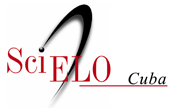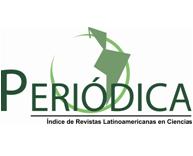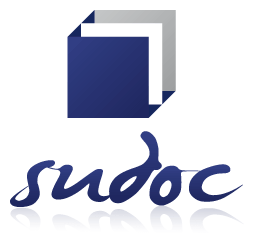Editorial Policy
Scope and editorial policy
Centro Azúcar Journal Topics
Centro Azúcar is an open access journal that publishes original articles, review articles and short communications in Spanish or English in the form of continuous publication with one volume per year, without issues related to the sugarcane industry and its derivatives, biofuels obtaining and technical, economic, environmental and social problems of its operation and development, chemical processes in general and derivatives, simulation and optimization of processes, environmental management, chemical engineering in general and it has a miscellaneous section.
Centro Azúcar Journal is in favor of Open Science, and therefore receives manuscripts from preprint repositories, and promotes research data placement in dataservers among other manifestations. It is in favor of open peer review.
This journal applies open peer review as a mechanism to favor transparency in the editorial and scientific communication process.
Open access policy
Centro Azúcar journal provides immediate open access to its content, based on the principle that providing the public with free access to research helps to increase the global exchange of knowledge.
It operates on the basis of the Budapest Open Access Declaration - BOAI 2002. According to this Open Access policy users are allowed to read, download, copy, distribute, print, search or link to the full text of articles, or use them for any lawful purpose, without any financial, legal or technical barriers, other than those inseparable from access to the Internet itself (http://www.budapestopenaccessinitiative.org/translations/spanish-translation).
All content is licensed under a Creative Commons Attribution - Non-Commercial 4.0 License (CC BY-NC), which allows sharing (copying and redistributing the material in any medium or format) and adapting (remixing, transforming and creating from the material), under the following conditions: authorship is acknowledged and no commercial use is made of the materials.
In accordance with this Open Access policy, at no step of the publication process are charges of any kind, the submission of manuscripts, processing, publication or reading, is totally free, i.e., NO CHARGES FOR PROCESSING OR PUBLICATION OF ARTICLES (No APC) APPLY.
Application of publication charges
This journal DOES NOT APPLY CHARGES FOR PROCESSING OR PUBLICATION OF ARTICLES.
Acceptance of preprint
The journal Centro Azúcar accepts articles that are deposited in preprint servers or other digital repository, social network, event, congress or other type. In all cases, the authors must be informed and the location address must be indicated at the end of the article.
Peer review process
Peer review helps the Editor and Editorial Board decide which articles are most appropriate for publication in the journal, while assisting authors and the editor to improve the quality of the papers being published.
Articles submitted to Centro Azúcar are openly peer-reviewed, and special care is taken to comply with established ethical standards to avoid conflicts of interest.
The journal relies on the collaboration of external reviewers from outside the publishing institution. All proposed manuscripts are sent to external reviewers.
The Editorial Board will conduct an initial review to determine the relevance of the topic and whether the manuscript complies with the Publication Guidelines. If the article presents methodological deficiencies or does not address a topic of interest to the journal, it will be rejected.
The reception and registration of the manuscript is only the initial step in the editorial process for its selection and does not necessarily lead to its acceptance for publication. The final decision rests exclusively with the Editorial Board, which reserves the right to choose the articles to be published, as well as to make stylistic modifications respecting the original content. The selection of the material proposed for publication is based on the interest for the majority of professionals, scientific soundness, originality, timeliness, timeliness of the information, seriousness in the treatment of the subject, its writing and compliance with ethical standards. The evaluation process of the articles is carried out through the journal's mail centroazucar@uclv.cu.
Authors should send the contact details of two possible proposals for reviewers who are experts in the topic in question, who have a scientific title of Ph.D. and who are not of the same affiliation, and who will be evaluated as possible referees. The manuscript is sent to two reviewers, who will have three weeks to review it; their conclusions will be evaluated by the editorial committee. In case of discrepancy of opinion between the two reviewers, a third will be appointed.
Each manuscript is reviewed taking into account the refereeing guidelines sent to the reviewers. The observations and suggestions of the Editorial Board and reviewers will be sent to the responsible author, who should respond as soon as possible.
The decision to publish without modifications, to publish with modifications or not to publish is communicated by the editor to the author. In case of rejection, the editor sends to the contact author the results of the evaluation with the reviewers' suggestions regarding the improvements that could be applied to the article. If accepted, the article goes to the editorial processing stage. Each article will be submitted to a maximum of three (3) re-submissions if it requires corrections by the authors. Once approved, a letter of acceptance will be sent to the authors.
The maximum time for the publication of an article from its submission, if accepted, is one year.
Anti-plagiarism policy
This journal uses an electronic match detection system as part of its editorial management to guarantee the quality of the publication, which contributes to the prevention of possible plagiarism. Articles with a level of coincidence above 50% will be analyzed in depth.
The editorial committee will analyze each particular case in relation to the ethical violation and will take appropriate action on a case-by-case basis.
Responsibility of the published contents
The contents published by Centro Azúcar as well as the accuracy of the references and the correct quotations in the text are responsibility of him or the authors of the manuscript.
Repository Policy and platforms to host the articles
Centro Azúcar and the authors agree that the released articles are hosted in the internal database of the Magazine, its web site, Biblat, Periódica repository of the Central University “ Marta Abreu “ of Las Villas, repository of the “ José Martí “Library and other indexer of the magazine, from where it is possible to access to read, to download, to copy, to distribute, to print, to translate, to look for or to link the whole texts of the content of the articles that are published.
Authorship Policy
The journal recognizes the people who sign as authors as long as they meet the universally established criteria for authors of scientific articles. Authors of articles will regularly be asked to send the authorship declaration by each of them and where their role in the research is explained. The editorial committee reserves the right to accept certain authors in relation to the declared role and the scope of the research. For the authorship declaration, the CRediT taxonomy is used (CRediT – Contributor Role Taxonomy).
Copyright Policy
The authors of the articles published in Centro Azúcar hold all copyrights of their work, but they agree that the journal publishes the works under a license Creative Commons Atribución-NoComercial 4.0 Internacional (CC BY-NC 4.0). The authors can present in the journal Research Articles, short Communications and outlines or reviews, so that they are published for free. Presenting a manuscript to the journal to be published implies that all the authors have read and accepted all the terms and conditions of the journal and agree that the manuscript is published under a license Creative Commons Atribución International 4.0, that allows without restrictions, the use, distribution, translation and reproduction of the document in any way, whenever the work is properly quoted. Besides, they also agree that the document could be hosted on the magazine web site, Biblat, Periódica or another indexer of the journal, from where it is possible to read, to download, to copy, to distribute, to print, to translate, to look for or to link the whole texts of the articles that are published.
Centro Azúcar grants the authors the right to reproduce this article, incorporate the work in one or several collective works, create and reproduce derivative works, commercialize the work, as well as distribute the same one.
It is a condition for the publication that the manuscripts presented to this journal have not been published and they will not be presented simultaneously somewhere else. The authors who want to complain must contact with the Editor- in- Chief of the journal.
Conflict of Interest Declaration Policy
Authors must declare in their research if there are conflicts of interest in relation to the research results proposed and will be responsible for the information provided. The declaration of conflict of interest is a section within the scientific article.
Policy on ethical violations
This journal adheres to all international best practice initiatives for scientific publication and uses the algorithms of the Committee on Publication Ethics (COPE) to resolve all cases of misconduct in scientific publishing.
Policy on publication frequency
The journal publishes in Continuous Publication mode.
Policy on languages of publication
The journal predominantly publishes articles in Spanish, but encourages publication in English provided the author (s) are native English speakers. English versions of articles in Spanish-by-Spanish speakers must have a professional translation certification.
Policy on the document referencing system
The journal uses the APA style for bibliographic referencing of articles.
Policy on errors after publication
Centro Azúcar requires authors to thoroughly review the final version of the manuscript before publication. Authors assume responsibility for any errors not detected before publication. Errors found after publication will be assessed by the Editorial Committee, which will decide whether to replace the current version or publish an erratum.
Policy on the publication of supplements
Supplements respond to the need to communicate specifically about a topic or event, although there are already so-called proceeding supplements.
The publication of a supplement in Centro Azúcar magazine is conditioned to the situations described above. Its structure and length will be determined by the Editorial Committee, in conjunction with the editorial processing unit. An ad hoc team may be selected to carry out the activity.
About the publication of commercial advertisements or promotions
Centro Azúcar magazine does not promote advertisements of commercial products that function as sponsors. However, in the environment of scientific activity, the pages of the magazine can be clear vehicles for dissemination. Courses, workshops and events related to the central theme of the publication can have a limited space in the magazine to be displayed.
Policy on Open Research Data
The Centro Azúcar journal promotes the openness of research data, as long as the level of confidentiality allows it. As part of compliance with the principles of Open Science, the author may present his or her research data on any of the servers available internationally for such purposes, which guarantees compliance with the FAIR principles (Findability , Accessibility , Interoperability , and Reusability).
The following are recommended:
DataCite, The Dataverse Network, Zenodo, SciELO Data
Policy on the use of Artificial Intelligence
Significant recent advances in large language models (sophisticated generative artificial intelligence - AI - algorithms trained on massive amounts of language data) have resulted in widely available writing tools, such as OpenAI's popular chatbot, ChatGPT, that can parse text and produce new content in response to user prompts. This technology has important and immediate implications for academics writing articles and for the journals that publish them.
Large language models have a powerful ability to search and repackage information from their training data set into a wide variety of formats and styles that users can specify. They can be used to generate ideas and outlines for academic manuscripts, or even the full text of articles. Because contemporary AI tools can be remarkably well trained to mimic human speech and writing styles, their results can closely resemble those of a human author and can convey the impression of accuracy and authority, as well as an emotional connection.
Requirements for reporting the use of AI-assisted technologies in manuscripts submitted to Centro Azúcar journal
- Centro Azúcar journal requires authors to declare any use of AI-assisted technologies in any aspect of the creation of the submitted work.
- Artificial intelligence and AI-assisted technologies should not be listed as an author or co-author of a manuscript.
- Artificial intelligence and AI-assisted technologies should not be cited as a reference or other primary source or as an author of a reference.
- Human authors are responsible for any material submitted that includes the use of AI-assisted technologies, including its correctness, completeness, and accuracy.
- Authors must be able to claim that there is no plagiarism in the article, including text and images produced by AI-assisted technologies, and must ensure proper attribution of all material, including full citations where appropriate.
- Peer reviewers should not upload manuscripts in software or other AI technologies where confidentiality cannot be guaranteed.
- Even if AI-assisted technologies are used in a manner that can ensure the confidentiality of the manuscript, reviewers who choose to use such technologies to facilitate their review must declare their use and nature and are responsible for ensuring that any AI-generated information the content incorporated in reviews is correct, complete, and unbiased.




















